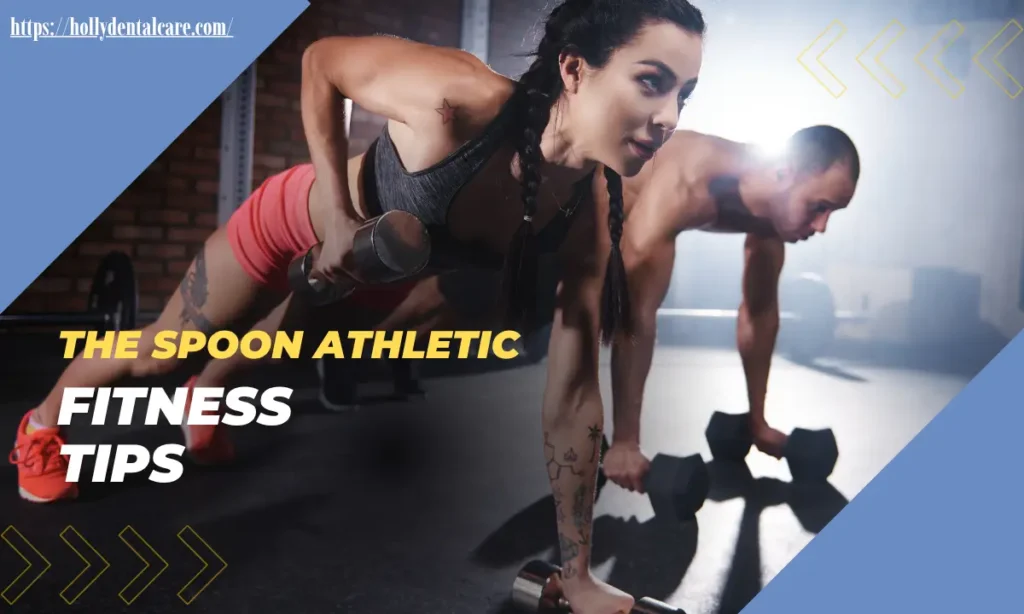The Spoon Athletic Fitness Tips take a holistic approach to athletic excellence. This approach deems four important areas of focus. The first of these areas calls for the athlete to master technique for maximized efficiency and reduced risk of injury. Then there is nutrition that must be optimized for fuel and recovery of the body. Following that is the recovery stage, so that the athlete may get either active rest or passive rest, and in turn will help the athlete’s body to rebuild stronger. Closing again comes another aspect of training: mental toughness-building to stay motivated and overcome obstacles. This mix of factors may provide an equilibrium from which any athlete can step away and train in the right way, remain consistent, and reach their fitness goals safely and sustainably.
What are The Spoon Athletic Fitness Tips
Being athletic is far more important to fitness than purely how you look. Said differently, it is a base for safe and effective training. Form-wise errors could either lessen the effects of any given exercise or cause injuries that might halt clients for weeks or even months. Issues would arise when individuals use inappropriate techniques, such as when it did not help correct an imbalance present in the muscle or become detrimental to the joints. Learning the most worthy movement patterns will help protect the body as well as promote activation of muscles, strength gains, and performance levels.
Common Technique Mistakes to Avoid
- Having the knees cave in or heels lift off while squatting places stress on the knees and takes away from strength.
- An overstride or faulty foot placement while running can result in shin splints or joint pain.
- Momentum or is overly arched back while lifting can compromise the spine’s integrity.
How to Improve Your Technique
- S-curve builds, along with emphasis and variability, should be used in forming good habit patterns.
- Use mirrors and cameras to check for any possible miscues during the execution of the technique and correct them.
- Use a training partner or coach to direct training and oversee progress for safety reasons.
- They should always warm up dynamically before doing any strength training. So, it can prepare their muscles and joints.
Nutrition Strategies for Athletic Excellence
Key Nutritional Tips
- Herein, nutrition surely deserves mentioning.
- Moreover, it greatly affects the energy levels, recovery, and muscle gain of an individual.
- Just as the athlete needs more calories and nutrients than a sedentary person, they expend more energy.
- While high-intensity workloads are fueled by carbohydrates, protein is important. Especially for muscle repair and growth.
Avoid
- Gastric errors like skipping meals or undereating are disastrous for performance and recovery.
- Living on processed foods and sugary snacks depletes energy due to varying blood sugar levels and further harms health.
- Fatigue comes on with dehydration, making a suitable ground for cramp or heat illnesses.
Recovery
- Hormones level high-quality sleep which ranges from seven to nine hours, flakes inflammation balancing and adds some brain function.
- Stretching keeps muscle flexibility and reduction of tightness and injury defense.
- Massage or foam rolling improves blood supply and healing to the muscles.
- Soothing sore muscles and injury are contrast shower method of ice bath.
- Scheduled recovery by setting active rest days or lighter training weeks allows for full recuperation.
Recognizing Overtraining
Other symptoms include persistent lethargy, decrease in performance, irritability, sleeplessness, and common ailments. On experiencing any of these, take some dedicated time off and re-evaluate the academics. For performance training, an athlete’s recovery is key, and this variable often separates stagnation from improvement.
Building Mental Strength: The Athlete’s Hidden Advantage
Being physically fit is important; however, the difference between a good athlete and a great athlete is one usually emphasized by mental strength. Mental conditioning helps a person overcome the obstacles, be consistent, and stay committed.
Mental Fitness Strategies
- Defined and realistic training goals themselves assure that concentration is maintained throughout.
- The vision of success adds to confidence and helps ease off nervousness.
- Mindful meditation or mindfulness is helpful in facilitating concentration and lessening tension.
- Positively convey your things for uplifting your spirit rather than demoralizing yourself.
- Create structures and discipline to be more consistent and balanced in everything you do.
Overcoming Plateaus and Setbacks
Although many athletes tend to suffer from injuries or motivational decrements, some athletes often become discouraged if they do not see improvement in their performance. Mental strength means adjusting and learning to carry on.
Support systems
Be among those who share similar values and foster your own fitness journey-training partners, coaches. It is your mental strength that drives your body to turn maximum fitness potential into reality.
Conclusion
The Spoon Athletic Fitness Tips goes on the major pillars of athletic success and such pillars consist of the must-have technical know-how, maximized nutrition management, prioritized recovery, and building mental resilience. You will be able to actually use the tips listed here in your daily training activities in order to train smart, stay uninjured, and fast-track your goals into achievements.The training must be consistent with a maximum of temporary dissatisfaction since fitness is a never-ending process. Just learn to listen to your body-no matter what; from there, it’s easier to shape your path toward the best version of yourself through sport and life.
Also read:- Jalbitehealth Guide: Your Comprehensive Resource for Wellness



